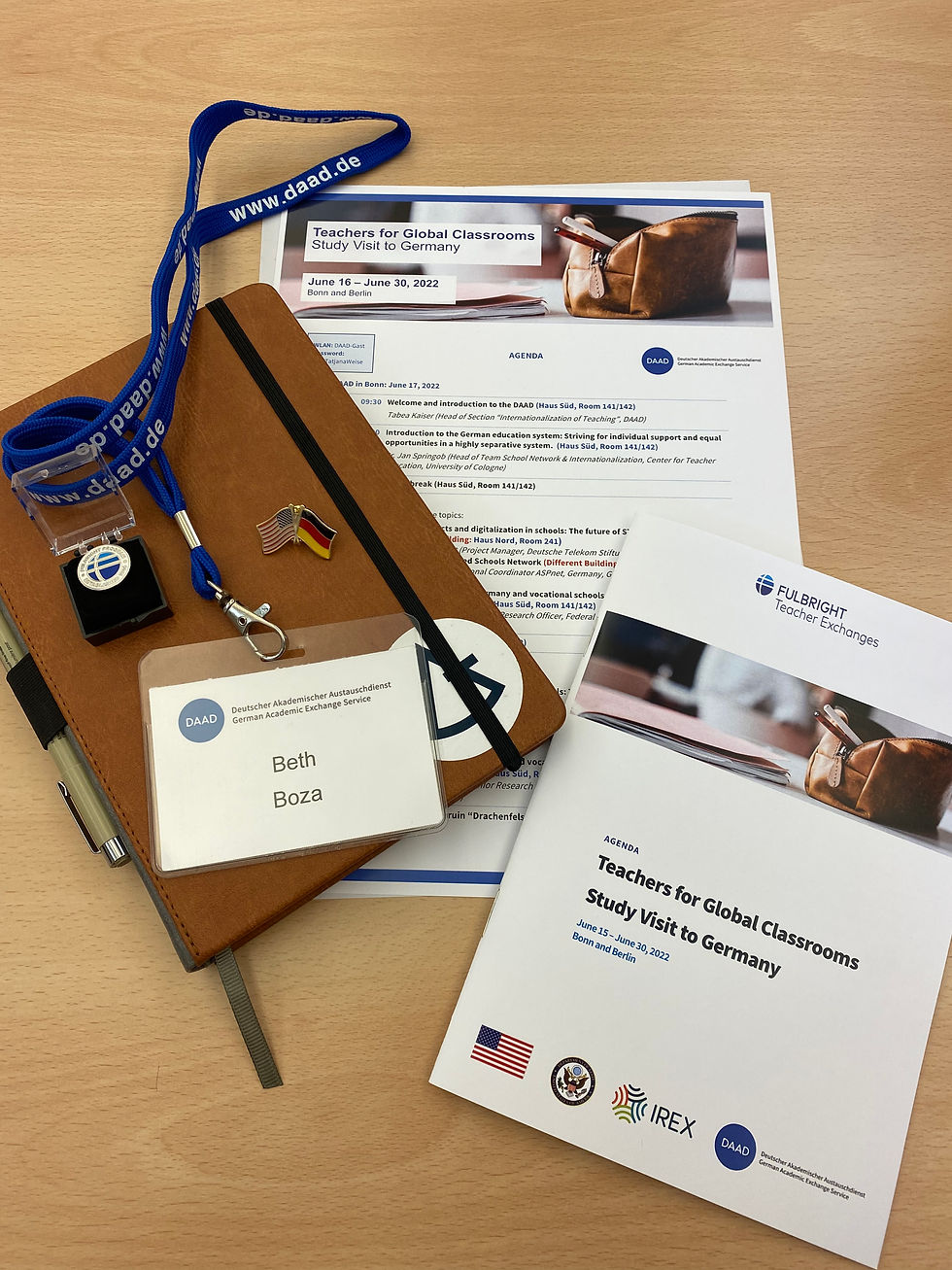DAAD & the German Education System
- bethjbrown
- Jun 17, 2022
- 2 min read
Updated: Aug 21, 2022


Our hosts in Germany are from DAAD, an organization focused on the internationalization of teaching and education. They facilitate many exchanges for students and teachers, as well as work with teacher-in-training programs. Check out this list of their goals. While it’s not listed, the ultimate goal is nothing short of world peace. The DADD helped schedule our programming, connect with schools, and were fantastic hosts.

Today we got a primer on the basic structure of general German schooling system. While many things sound similar to our schools in the US (Kindergarten!), there are some very large differences.
Students go to primary school at 6 yr old and stay in that school grades/years 1-4, usually with the same teacher each year. At the end of fourth grade students are tracked into one of five different secondary schools, each with a different focus. Check out this video to understand a little more

Students with high grades or achievements are recommended to Gymnasiums, or high schools. This is basically a college track school. Students who go to Realeschule or Hauptschule can technically be done after year 10, though many go into vocational schooling until year 12.
Students and their parents have some say in which schools they go to, but there is heavy emphasis on the teacher’s recommendation. Technically students may switch between schools, but that rarely happens in practice. I would be very interested to see data over the decades investigating the correlation between generations and what school students get placed into. For example, if your parents went to a Hauptschule, how likely is it that you will as well?g Today raises many questions about a schooling system very different than our own. I am looking forward to learning more as we visit different kinds and levels of schools.

UNESCO
One of our sessions today was led by Klaus Schilling, a coordinator for the ASPnet and the German branch of UNESCO. I was enthralled to learn more about UNESCO schools, as my only previous knowledge of the organization is about its branded World Heritage Sites. There are 300 UNESCO (United Nations Educational, Scientific, and Cultural Organization) schools in Germany, all of which focus heavily on learning through the UN SDG's. These schools are "laboratories of ideas" that try to instill the following tennets in their students: Global Thinking, Sustainability, and Intercultural. They are action-oriented and have created some amazing projects that connect students across countries and the world. I was especially impressed with their picture cards that focus on historical and modern aspectsof what it means to be Jewish in Germany, and their clean water initiatives.






Comments